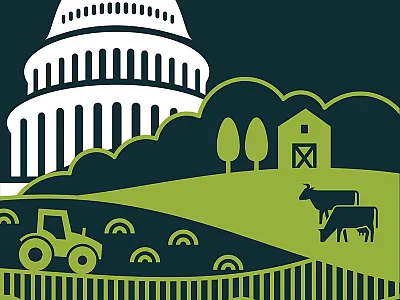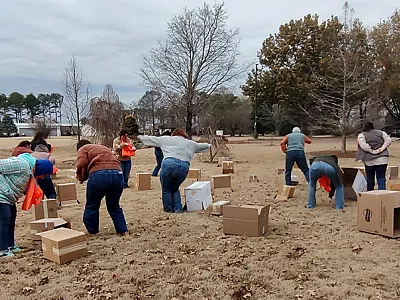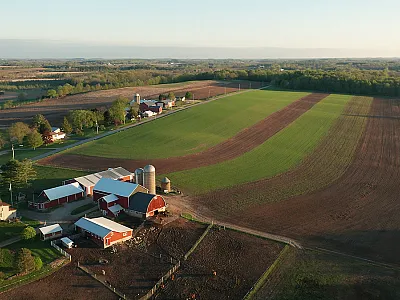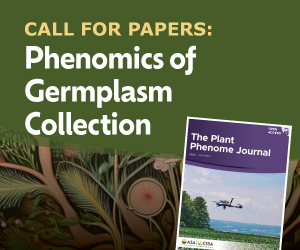A Global Focus on Agriculture and Climate Change
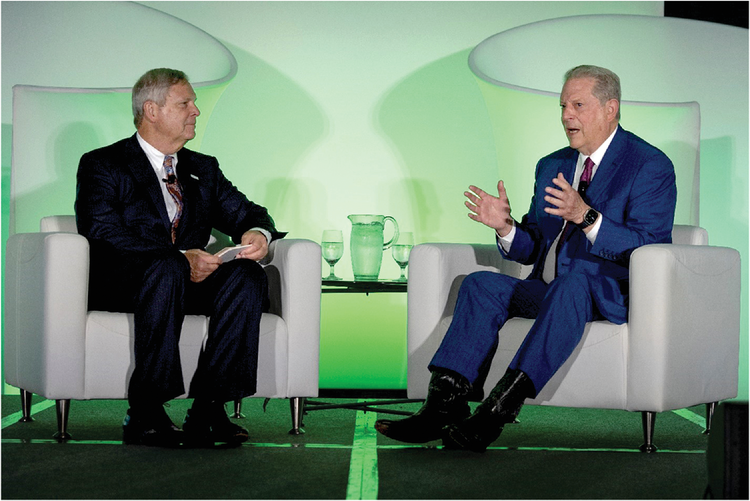
In May, USDA Secretary Tom Vilsack co‐hosted the inaugural Agricultural Innovation Mission for Climate (AIM for Climate; aimforclimate.org) Summit alongside the United Arab Emirates Minister of Climate Change and Environment Mariam Almheiri. AIM for Climate was launched at COP26 with the goal of working to enable solutions at the intersection of agriculture and climate. Since the launch, more than 400 organizations and 50 countries worldwide have joined the movement.
The Summit, held in Washington, DC, brought together world leaders in agriculture to increase and accelerate investment in and support for agriculture and food systems innovation for climate action. The event—coined to be “for the partners, by the partners”—was exclusively attended by AIM for Climate partners representing policymakers, industry leaders, producers, civil society groups, and scientists and researchers (ASA, CSSA, and SSSA are “Knowledge Partners”). Over the course of three days, the program featured prominent speakers such as former U.S. Vice President Al Gore, U.S. Special Presidential Envoy for Climate John Kerry, and many other world leaders, CEOs, and renowned scientists. In between plenary speakers, participants attended breakout sessions meant to announce and amplify innovation sprint partnerships and their work in climate‐smart agriculture and food systems innovation.
Many members of ASA, CSSA, and SSSA attended the summit and presented their partnership initiatives. For instance, Dr. Cristine Morgan, Chief Scientific Officer at the Soil Health Institute, presented on the U.S. Regenerative Cotton Fund, which has secured $7.8 million to provide a standardized, science‐based, locally relevant framework to measure and monitor soil health. Dr. Cynthia Rosenzweig, Senior Research Scientist at the NASA Goddard Institute for Space Studies, spoke on a panel focused on “A Vision for Adapted Crops and Soils (VACS) in Africa.” The VACS initiative is a collaboration between the Office of Global Food Security at the U.S. State Department, the United Nations Food and Agriculture Organization (FAO), and the African Union. This partnership focuses on adapting agricultural systems in Africa both above the ground, through investments in plant breeding of nutritious crops, and below the ground, through improvements in soil health.
Great Engagement Opportunity for Our Members
The global movement addressing climate change through agriculture presents a great opportunity for our members to engage. This event showcased the need for resources like Decode 6 (https://decode6.org/) to help producers better understand climate‐smart agriculture and financial opportunities available simultaneously improve their productivity and sustainability. Decode 6 can serve as a resource for this audience, both domestic and abroad, as the platform develops more locally relevant content. The needs and opportunities for producers in the United States are very different than for smallholder farmers in Africa, yet all of these farmers need science‐based, bite‐sized information to make decisions in the face of changing climate conditions and mitigation initiatives.
It was also clear as the innovation sprints were being announced that there’s a great need for scientific expertise in addressing world food security and climate change challenges. Further, as these global initiatives continue to grow, and the investment into solving these challenges grows accordingly, there will be more opportunities for research funding to help answer critical questions. At a reception hosted by the Supporters of Agricultural Research (SoAR) Foundation, speakers highlighted the relative investments needed to eliminate hunger compared with those needed to transform our food system in response to changing climate conditions. To end global hunger and meet Sustainable Development Goals by 2030 would require approximately $30 billion in annual financing.
If we want to also transform our food systems to meet global climate goals, we will need a tenfold investment of $300 billion. Much of the investment needed to transform our food system must go towards research and innovation.
While the ASA, CSSA, and SSSA Science Policy Office primarily focuses on issues at the federal level, there are so many opportunities for our members to engage in international diplomacy efforts. The AIM for Climate Summit and partner initiatives are great examples of how the agronomy, crop science, and soil science community can be a reliable partner for issues at a global scale. Learn more about AIM for Climate (aimforclimate.org), and find out how you can engage with an innovation sprint or become a partner.
2https://impact.economist.com/perspectives/sites/default/files/endinghunger.pdf.
Text © . The authors. CC BY-NC-ND 4.0. Except where otherwise noted, images are subject to copyright. Any reuse without express permission from the copyright owner is prohibited.




